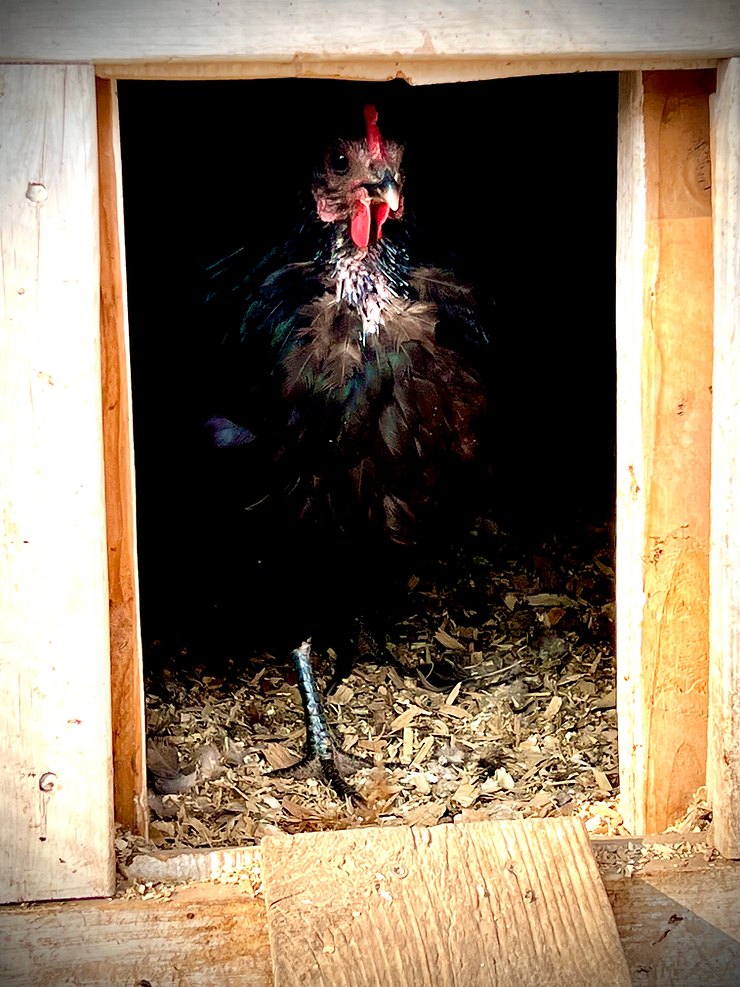Your chickens might be looking a little ratty. Their feathers might look torn up or they might be bald in some places. They might even already be regrowing feathers and you just see the quills. You might also notice that there might not be as many eggs in the nesting boxes. Give your ladies some grace on paying rent for the next couple of months.
Around fall each year, chickens go through a molt. Molting is normal, so no cause for concern! But there are some things we can do as chicken owners to help them get through it.

Feathers are made of about 85% crude protein! To get those feathers back quicker and give those chickens some help, we’ve got to provide more protein. I do that in two ways.
- Buy a protein pellet that is at least 18 % protein. Nutrena has a Feather Fixer that is 18%. But, I like using an All Flock feed. Usually, that’s at least a 20% protein feed. From this, I saw a quicker recovery. If you have ducks, you can feed this to them as well during the molting period. I usually feed my ducks Purina Duck Feed.
- I supplement their higher protein feed with black-oiled sunflower seeds. I don’t feed them a lot of these because too much of a good thing can be a bad thing. But they love them and it’s a cost-effective way to give them a treat to also help them get through their molt.
Pecking from other chickens might ensue. Chickens peck things that stand out to them. If there is a bald spot on a chicken, other chickens are drawn to it. If you notice a chicken that has some blood or irritation, this product is great to help chickens keep away.
Molting season is LONG. 8-16 weeks long. Give your girls time to get pretty again. Supplement, give them treats, and give them scraps. They will be even prettier when they get their new feathers in. As a chicken molts, they get rid of those feathers that aren’t keeping them warm anymore and grow new feathers to keep them warm for the winter months. The new feathers will be shiny and beautiful. So be patient, they will get there.

Also, a side note, if you are checking your chickens and notice lice or mites, this is a great time to treat them. We do so if it’s a minor infestation, with DE. DE stands for diatomaceous earth. You only want to use the food-grade DE. It’s a natural repellent that will kill the lice or mites by coming into contact with them.

